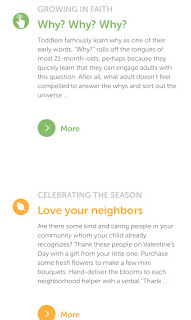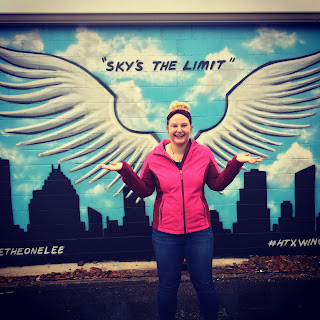Thanksgiving
is one of my favorite holidays. It’s great because the whole point of the day
is just to eat and hang out, and that’s it. Not only that, but it includes all
my favorite foods, like mashed potatoes, green bean casserole, and pies. It’s
also a great day to be a sports fan, with NFL and NBA games on all day. If
you’re lucky, your team will play your rival and you can watch them embarrass
themselves with a play like a butt fumble, like Mark Sanchez did when he ran
into his own lineman and lost the ball when he played my Patriots in 2012.
Overall,
I find this to be a great time of the year. It’s right before all the craziness
of the holiday season comes up. This makes it a great time to just feel really
good about everything. Even these readings today can help bring up the mood.
Joel goes on about how God will provide, and Matthew has Jesus telling us not
to worry. But, of course we don’t listen to Jesus and worry about all the
things he explicitly tells us not to.
If
any of you have tried to host a Thanksgiving dinner, I’m sure you’re well aware
of how hard it is NOT to worry. There are worries about travel, the cleanliness
of the house, and of course, making sure everyone has their favorite dish ready
and there’s enough to share. But let’s be honest, most thanksgivings end up
with more than enough food and everyone goes home with enough leftovers for the
rest of the week (if not more). In the end, most of these things we worry about
turn out to be just fine.
The
amount of food we have, especially on a day like Thanksgiving, can be something
that is easily taken for granted. When Jesus says not to worry about food,
that’s normally not much of any issue anyways. However, for those without food,
it becomes the only concern, the only thing to worry about. Unfortunately, we
know that is a reality for many people in our community. According to Feeding
America, around 1 in 8 Americans struggle with food insecurity, or don’t have
the resources to properly access enough food for their household. Looking at
Champaign county, we’re a little above the national average, with about 1 in 6 people
in our area being food insecure. So, this is a real problem for us. This is
something we need to be worried about.
When
it comes to this issue of food insecurity, one of the most eye opening
experiences I’ve had was a poverty simulation I experienced in college. The
process starts with everyone being given new identities and put into families.
Each person and family is unique, and each has its own set of circumstances.
They’ll tell you if you have a job, how much you make, if you have a car, and
any other information that may influence your experience. Throughout the simulation
you have to do normal daily tasks, like going to work, sending kids to school,
or paying bills. During this experience, you see not only how hard regular day
to day life can be, but how many more obstacles come up when you live below the
poverty line, or even just close to it. Eviction notices are put out, people
get arrested, companies can fire their employees, and yes, kids are even taken
by DCFS. Everyone feels pretty defeated by the end of the simulation.
At
the end of our simulation, we all realized we had made a mistake. Out of all the
stations, there were certain stations that were consistently bypassed. While
everyone was frantic to pick up kids, buy groceries, and paying all the bills,
people missed the assistance programs. There were food pantries, finical
assistance programs, and education opportunities, but they were never used. No
one stopped by and asked for help.
We see this
in real life too. There are so many people that could benefit from programs or
other forms of assistance, but they either don’t know they exist, don’t know if
they qualify, or just simply don’t think they deserve the help. Not to mention
how many hurdles come with some programs. Sometimes the work to apply for these
programs just doesn’t seem worth it.
We are
called to bridge these gaps, and we work to answer that call. There’s not one
person here who isn’t heartbroken knowing that there are people in our
community that are hungry. Our church communities turn that heartbreak into
motivation to get food out into the community. Here at Grace, our food pantry
helps numerous people every week, but we’re not the only ones working on this
issue. Good Shepherd also has their own food pantry, and St. Matthew does a lot
of work with their Sola Gratia farm. Those ministries are just part of what we
do to make food more accessible in the CU-area.
While food
security is a major issue, it’s not the only way hardship comes into our lives.
We can have full pantries, live well above the poverty line and still
experience hardships. Life can throw us all sorts of curveballs that we feel
like we can’t handle, and we each have our own unique experiences. On average,
each person will experience at least 3 traumas in their lifetime. So, it’s not
a matter of if you will experience some sort of hardship, but more of when and
how. Traumas can be a wide range of incidents, anywhere from being a victim of
violence, illness, natural disasters, losing a job, or even having someone
close to you experiencing their own trauma. No matter what it is, we often find
it hard to ask for help, to be vulnerable. Realizing not only is there a
problem, but the problem can’t be solved on your own can be a difficult
conclusion to come to.
What
can we do knowing that we’re all dealing with different struggles? A lot of
times we forget that God didn’t makes us to be alone, we are made to be in
community. God didn’t just make Adam, God made Eve as well because it wasn’t
good for humans to be alone. We are given friends who are willing to listen
when you need to vent, we have family who will bring casseroles when you just
can’t cook, and we have communities in place willing to clean up when the
weather turns on us and damages our neighborhoods.
While we
know what we are called to do, we are still a sinful people. We can’t escape
it. We all have our own versions of the butt fumble - we all make embarrassing
mistakes we wish we could forget. We do all sorts of things because it’s what
we want, is only beneficial to us, rather than following God’s will for this
world. Our sinful nature is exposed both by what we have done and by what we
have left undone. Problems like hunger aren’t new, yet somehow, even with all
the great work we are doing, there are still hungry people all over the world.
Sin wants us to be selfish and believe that helping others is an impossible
task.
Thankfully,
we have Jesus, who through his death and resurrection releases us from those
sins. Sin doesn’t get to have the last word, Jesus does. We don’t have to worry
about what sin wants, but instead can focus on the love we find in Jesus. Jesus
tells us not to worry, because we can trust instead. We can trust that God
created this world with the ability to make enough food for everyone, and that
we can find ways to make sure everyone has access to it. We can trust each
other when hardships come into our lives, that we can be vulnerable with one
another and depend on those around us to help pull us back up. We can trust the
gifts that God has given us, knowing that we have our own unique ways to be
God’s hands and feet in this world and that God will work through us to show
God’s love to everyone.
When we
trust like this, we are working with God to usher in this Kingdom that God
wants for us. This is a world where the focus isn’t on us as individuals, what
our own wants and needs are, but instead the focus is on our love for our
neighbors and the love we receive from God. We can display God’s creation in
us, how we are made in God’s image, by loving each other as God loves each of
us. God is using to turn that love in to actions, where we work together to
solve whatever problems we may face. We know we don’t have to do this work
alone, and neither does God. God is already working through us. This
Thanksgiving, we can be thankful for this partnership that we are constantly
being invited into, for a creation full of resources for us to share, and our
communities around us that continue to work to support one another.






















